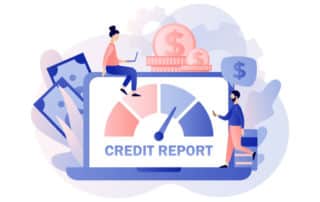
Filing for Chapter 7 in Florida
A chapter 7 bankruptcy gives you the chance to discharge your unsecured debts while retaining your exempt assets. The bankruptcy trustee will liquidate your non-exempt assets and distributes the proceeds to your creditor(s).
There are specific debts that you cannot discharge when filing for Chapter 7 in Florida, including student loans, domestic support, child support, and tax debt. To qualify for Chapter 7, you must meet specific income requirements or pass a means test.
Qualify for Chapter 7 Bankruptcy in Florida
The first step toward determining if you qualify for Chapter 7 in Florida is by looking at your total household income (“THI”). If your THI is at or below Florida’s median income level according to your household’s size, then you do not need to take the means test.
As of May 1, 2020, median income levels in Florida are:
- One-person household: $50,641
- Two-person household: $61,619
- Three-person household: $67,717
- Four-person household: $81,091
- Five-person household: $90,091
- Six people or greater: Add $9,000 per person
For households earning more, then you must qualify by passing the means test. Under this test, an analysis of your income and expenses over the past 180 days before filing your petition will determine if you qualify file for Chapter 7 or if you should consider Chapter 13 instead.
Maximum Income for Chapter 7
Determining the maximum income for Chapter 7 is challenging to establish since every financial situation is different. The means test considers your disposable income in addition to your assets and debts. As such, it is also critical to recognize that you can claim certain expenses to help you pass the means test. Speak with a Miami Chapter 7 bankruptcy lawyer for more information.
Residency Requirements
Filing for Chapter 7 and using Florida bankruptcy exemptions requires you to live in the state for at least 730 before filing the petition with the court. If you have not lived in Florida for the necessary amount of time, then your exemptions depends upon where you lived for the majority for the past six months.
Credit Counseling
Before filing for Chapter 7 in Florida, you must also complete a credit counseling course from an approved provider. You must complete this course within the six months before filing your petition.
Florida Chapter 7 Bankruptcy Exemptions
Bankruptcy exemptions protect your property when filing for Chapter 7 in Florida. These laws exist at both a state and federal level. Essentially, your exempt property is “safe” from creditor liquidation.
The current bankruptcy exemptions in Florida are:
- Homestead exemption: You may exempt all of your homestead. A homestead may be fully exempt if it is 160 acres of contiguous land and improvements thereon if located outside -a municipality; or if located within a municipality, 1/2 acre of contiguous land. The 2005 changes in the Bankruptcy Code (BAPCPA) now limit the Florida homestead exemption in certain cases with a cap of $146,450 for single filers, or $292,900 for joint filers if you didn’t acquired the homestead within 1,215 days of filing.
- Motor vehicle exemption: You can also protect up to $1,000 in motor vehicle equity if you are a single filer, while joint filers can claim up to $2,000. If you do not use the homestead exemption, then you may apply up to $4,000 from your wildcard exemption toward your vehicle.
- Wildcard exemption: If you do not claim the Florida homestead exemption, a single filer may exempt an additional $4,000 of personal property, and joint filers may exempt up to $8,000. Filing for Chapter 13 in Florida allows you to utilize this exemption flexibly.
- Personal property exemption: You may protect up to $1,000 of personal property, like jewelry, clothing, appliances, and more. If you do not take the Florida homestead exemption, then you may apply the wild card exemption and take an additional $4,000 per filer.
- Wages exemption: Florida statute § 222.11 – If you are the head of the household, then you can exempt up to $750 a week from your wages or the greater of 75 percent of your total wages or 30 times the minimum wage rate. For a joint filing, the other person can exempt the greater of 75 percent or 30 times the minimum wage rate.
- Earned Income Credit: Pursuant to Florida Statute §222.25, you are permitted to exempt your entire Earned Income Tax Credit (EIC).
- Life Insurance Policies: Pursuant to Florida Statutes §§ 222.13 and 222.14, cash surrender value of a life insurance policy is exempt from attachment, garnishment or legal process in favor of any creditor of the person whose life is so insured.
- Veteran’s Benefits: Florida Statute § 744.626 states “except as provided by federal law, payments of benefits from the United States Department of Veterans Affairs or the Social Security Administration to or for the benefit of a disabled veteran or the veteran’s surviving spouse or dependents are exempt from the claims of creditors and shall not be liable to attachment, levy, or seizure by or under any legal or equitable process whatever, either before or after the receipt of the payments by the guardian or the beneficiary.”
- Disability Income Benefits: Pursuant to Florida Statue § 222.18 states that Disability income benefits under any policy or contract of life health, accident, or other insurance of any form, are not liable to attachment, garnishment, or legal process in favor of any creditor or creditors.
- Tenancies by the Entirety: A tenancy by the entirety is the tenancy created at common law by the conveyance or devise of property to a husband and wife. One incident of a tenancy by the entirety under Florida law is that property so held (either realty or personally) is not subject to execution by a creditor with a claim solely against one, spouse. See, e.g., Meyer v. Faust, 83 So. 2d 847 (Fla. 1955).
- Retirement exemption: The Southern Florida bankruptcy court will exempt up to $1,171,650 from your retirement accounts, including 401(k)s and IRAs.
The U.S. Bankruptcy Code allows exemptions so that you do not end up in dire straits. Instead of starting from scratch, you can keep some of your property so that you actually receive a fresh financial start.
How to File for a Florida Chapter 7 Bankruptcy
Filing for Chapter 7 bankruptcy in Florida requires you or your Miami Chapter 7 bankruptcy attorney will file a petition along with several other forms with the U.S. Bankruptcy Court for the Southern District of Florida. You must also complete the schedules that speak to your current financial condition.
Do not falsify information on these documents. You can jeopardize your case if the court or your creditors feel that you have not been forthcoming. However, you can avoid all legal mistakes by hiring a Miami Bankruptcy Lawyer instead.
Start by Scheduling a Free Consultation
If you need help passing the bankruptcy means test or your situation is more complex, contact Miceli Law, P.A. today for a Free Consultation. Request yours by messaging our office privately or by calling (305) 515-5928.
Latest from our Blog
Consultations Available At:
Consultations Available At:





